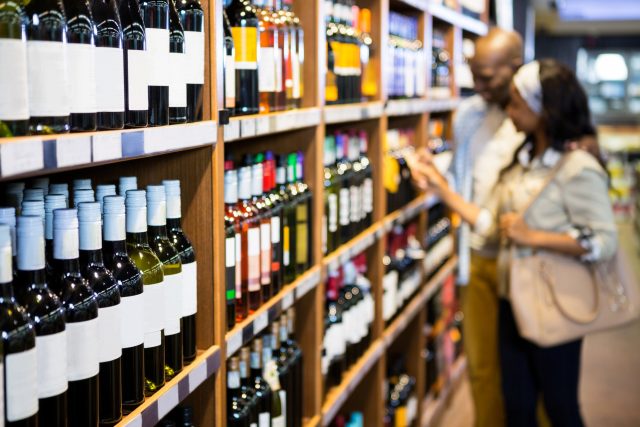This website uses cookies so that we can provide you with the best user experience possible. Cookie information is stored in your browser and performs functions such as recognising you when you return to our website and helping our team to understand which sections of the website you find most interesting and useful.
Kantar: grocery inflation ‘the driving force’ behind record Christmas sales
UK grocery sales hit £12.8 billion in the four weeks to 25 December 2022, the latest figures from Kantar have shown – the first time the £12 billion mark has been breached – however inflation was the “driving force” of this boost, it said.

Sales at the grocers over the 12 week period grew 7.6%, and over the shorter four weeks 9.4%, the fastest market growth since February last year, Kantar’s head of retail and consumer insight Fraser McKevitt pointed out.
“If we look at the amount people bought this period, sales measured by volume are actually down by 1% year-on-year, showing the challenges shoppers are facing,” he pointed out.
However, he noted that “all of that growth” is down to higher prices rather than increased purchasing with grocery inflation now at 14.4%.
“Searching for the silver lining, the rate of price increases has fallen for the second month in a row [down by 0.2 percentage points] so is going in the right direction, but it’s hardly cause for celebration yet,” he noted.
Shoppers continued to trade down from brands to own label, McKevitt said – with the cheapest own label ranges growing the quickest, although premium own label lines collectively sold more than £700 million pounds in the month up on last year.
Although Tesco finest is the biggest range in this part of the market, the largest contributions to growth came from Aldi and Lidl, McKevitt said.
BWS sales
In terms of BWS, the fastest growing products in the four weeks to 25 December 2022, compared to the same time a year ago, were cream liqueurs, world beer, malt whisky, champagne and craft beer, Kantar said. Traditional festive favourites (mulled wine, cream liqueurs, Port and Champagne) also grew their share of the overall BWS market versus the same time last year.
The fastest growing categories over the Christmas period versus the same time last year are no-alcohol spirits, golden rum and tequila, Kantar told the drinks business.
Some of the boost for beer came courtesy of the FIFA men’s World Cup in December.
“England’s Quarter Final match against France on 10 December saw sales hit their biggest daily takings of the year, surpassed only by the Friday and Saturday before Christmas as people stocked up on festive drinks,” McKevitt said.
Footfall
Footfall in-stores was also up 5.2% on last year, when the Omicron variant dampened people’s enthusiasm for large gatherings, with December being the busiest month in store since the start of the pandemic. And although there was a slight decline in online grocery’s market share down 0.6 pecentage points to 11.6%, the sector remained in growth with value sales up 4% year-on-year.
McKevitt noted that more than two thirds of sales went though the traditional retailers (previously known as the Big Four) with Asda leading the charge with sales up by 6.4%, followed by Sainsbury’s and Tesco which achieved sales growth of 6.2% and 6.0% respectively.
And although MOrrisons declined, with sales down 2.9%, the retailer could “take heart from their best performance in a year and a half” McKevitt said, arguing that it “may well return to growth in the New Year.”
Meanwhile, Aldi and Lidl were unlikely to be disappointed, with Aldi remaining the fastest growing grocer with 27.0% growth, taking its market share to 9.1% (up from 7.7% in the previous year), while Lidl sales sales grow by 23.9%, moving its market share 0.9 percentage points to 7.2%.
Convenience retailer Co-op’s market share now stands at 5.6% ahead of Waitrose at 4.7%, while Ocado saw sales growth of 8.2%, helping it maintain its 1.7% market share.

